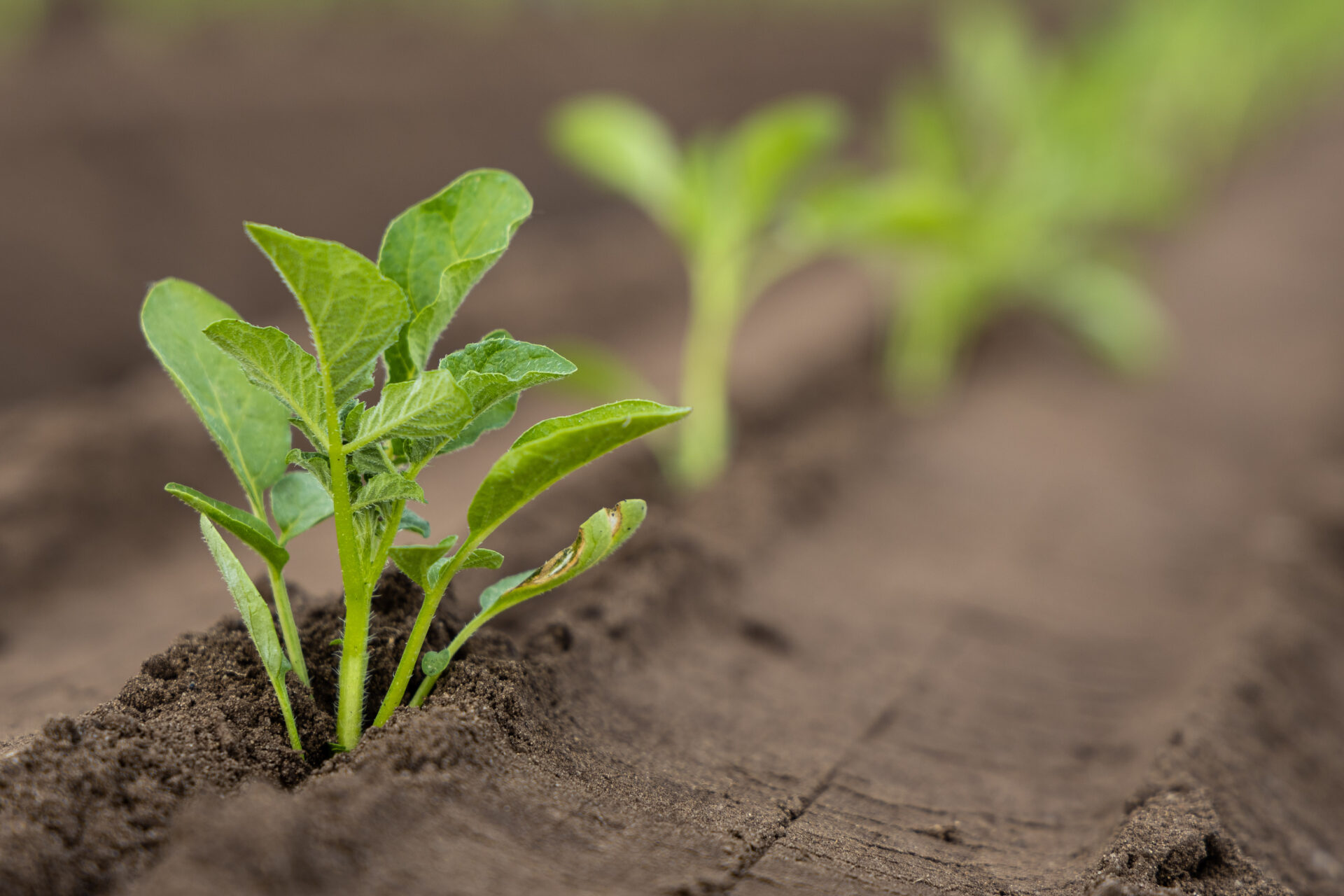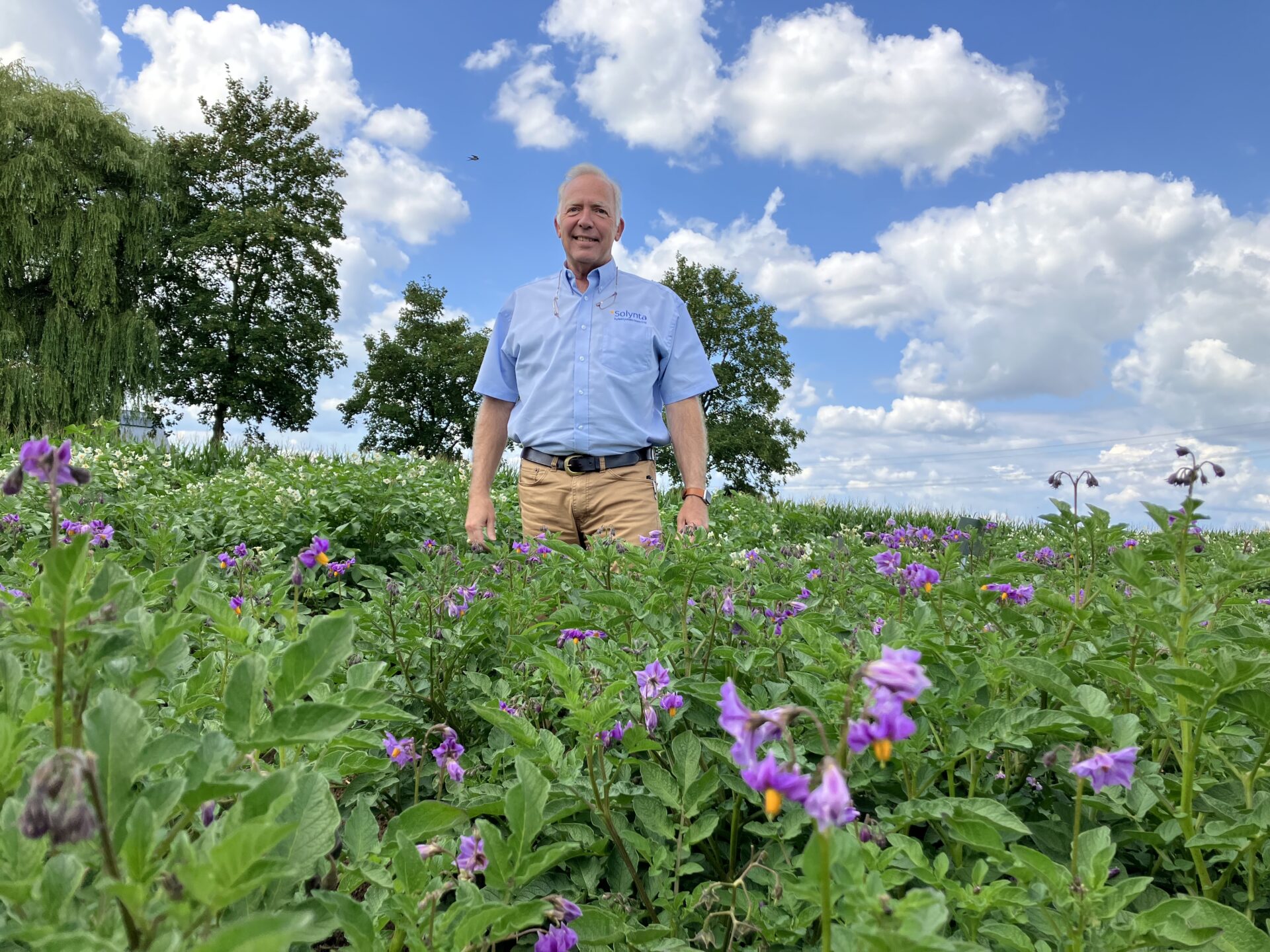
Charles Miller is the director of strategic alliances and development for Solynta, a European seed producer focused on hybrid true potato seed varieties.
The views expressed in this article are the author’s own and do not necessarily represent those of AgFunderNews.
Earlier this year, Brussels was rocked by the publication of a secret legal opinion written by advisers to the European Parliament and arguing that, no, the European Union does not follow its own rules on pesticides. This news, which followed the EU’s decision to allow the use of glyphosate, encapsulates Europe’s problem: We can’t reduce chemical inputs and still have food security if the crops we grow need those inputs.
When the conversation revolves solely around reducing agrochemicals, we get further away from building a future where they aren’t required. Instead, we need a roadmap for minimizing reliance on these chemicals altogether; in doing so, we can bring more sustainable food systems (and food security) to the world.
The European Union is a major agricultural supplier, and its decisions hold sway over many other nations’ food security and sustainable practices. From Africa and Eastern Europe to Asia and even South America, regions rely on the EU for seeds, seedlings, and other essential crop resources (also called “starting material”).
This interconnectedness means that the impact ripples outwards if EU suppliers face challenges. A recent example is the potato blight in Europe’s particularly adverse growing season. The resulting scarcity has meant a 30% price increase for potato-starting materials (seed tubers). This is the global dependence on Europe exposed.
In short, if the EU does not find a way to grow starting material safely without pesticides, then the rest of the world will not be able to do so either. Therefore, a healthy and resilient EU agricultural sector is critical for ensuring a stable global food supply.
Aside from this economic pressure from its trading countries, the European Union is under public pressure to build a more sustainable food system that doesn’t sacrifice farmer economics. But as the leaked legal opinion shows, a lot of time is spent on allowing or minimally reducing the allowable quantities rather than fostering a future where chemical intervention is minimized.

Expanding support for agricultural innovation
Europe could look to a trading partner for inspiration on how to do this: Canada. While Canada also faces pressure to reduce pesticide use, its regulators are taking a more future-oriented approach. They have processes in place to more quickly pivot to approve new agricultural practices, such as permitting new varieties of potato (via the approval of true potato seeds). This flexibility to new technology is a more long-term and sustainable solution to food security that supports farmers.
Europe can do the same by expanding our support for agricultural innovation. Our regulatory framework for agricultural advancements hasn’t seen significant updates in decades, and the delays are starting to show.
Consider hybrid crops, which offer a proven method for immediate pesticide reduction. It’s important to remember hybrid crops aren’t genetically modified organisms (GMOs); they are natural crosses of existing plants, specifically chosen for traits like their resilience against pests, ability to accommodate climate stresses like drought, and for quality characteristics (like for a certain quality of french fries).
Yet, compared to other countries, Europe’s approval process for hybrids can drag on for years. The wait can stretch to a decade or more for new hybrids, like disease-resistant potatoes. That’s a decade where growers must rely on agrochemicals to have harvests to feed Europe.
By streamlining approval processes for such advancements, the EU could emulate Canada’s two-pronged approach by combining reduction targets with a stronger emphasis on a regulatory environment for agricultural innovation. This would address immediate concerns and pave the way for a sustainable agricultural system, less reliant on chemical solutions and better equipped to handle future challenges.
Now that we’re past our elections, Europe has a crucial opportunity to prioritize a future of resilient agriculture. It is my hope that we’ve elected MEPs who understand the urgency of balancing grower needs – for disease-resistant crops and a stable supply chain – with consumer demands for a sustainable food system that minimizes pesticide use. With just a few changes and some flexibility, we can ensure a future where food security and environmental well-being go hand in hand.
Read the orginal article: https://agfundernews.com/guest-article-eu-regulators-are-more-focused-on-reducing-pesticides-not-building-a-future-where-they-arent-required


